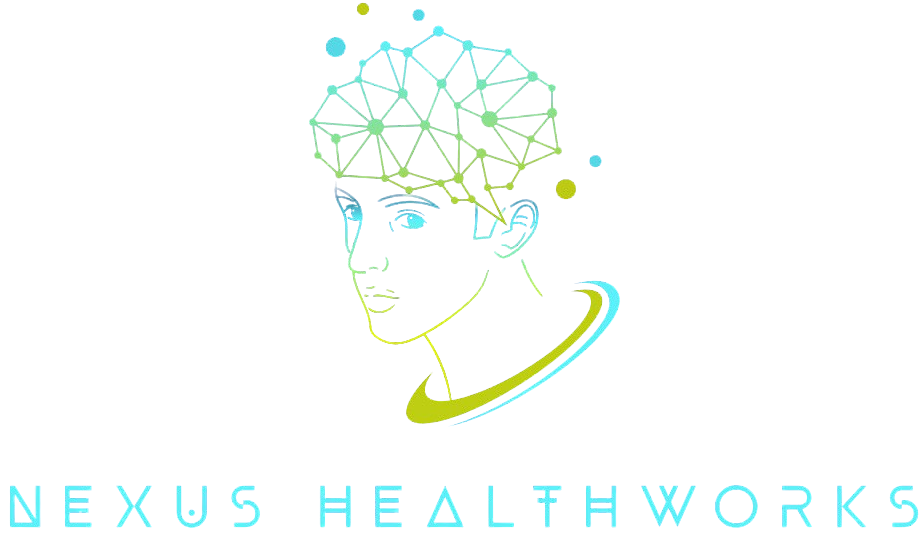Post-Traumatic Stress Disorder (PTSD) is a mental health condition that develops after experiencing or witnessing a traumatic event. It affects individuals differently, causing emotional, physical, and psychological symptoms that interfere with daily life. Trauma can result from events such as accidents, natural disasters, violence, abuse, or combat.
At Nexus Healthworks NP in Psychiatry P.C., we provide specialized care for PTSD in children aged six and older, adolescents, and adults. Our approach integrates therapy, medication management, and holistic support to help individuals heal from trauma and regain control over their lives.
Recognizing the Symptoms of PTSD
PTSD symptoms can vary in intensity and duration but generally fall into four main categories:
Re-Experiencing Symptoms:
- Flashbacks, feeling as if the event is happening again.
- Intrusive memories of the traumatic event.
- Nightmares or distressing dreams related to the trauma.
Avoidance Symptoms:
- Avoiding places, people, or activities that remind you of the trauma.
- Suppressing thoughts or feelings associated with the event.
Arousal and Reactivity Symptoms:
- Feeling constantly on edge or hyper-vigilant.
- Irritability or outbursts of anger.
- Difficulty sleeping or concentrating.
Negative Changes in Mood and Cognition:
- Persistent feelings of guilt, shame, or hopelessness.
- Difficulty remembering parts of the traumatic event.
- Loss of interest in previously enjoyed activities.
If these symptoms persist for more than a month and disrupt daily life, professional care is essential.
Why Addressing PTSD Is Crucial
PTSD impacts every aspect of an individual’s life, from mental and emotional health to relationships and work performance. Seeking treatment is vital because:
- Untreated PTSD can lead to long-term mental health issues, including depression, anxiety, and substance abuse.
- Symptoms often worsen over time, interfering with daily routines and overall quality of life.
- PTSD affects relationships, creating emotional distance and difficulty communicating with loved ones.
- Professional care can help individuals process their trauma in a healthy way, reducing the impact of triggers.
- Early intervention improves coping mechanisms and reduces the risk of developing additional mental health conditions.
- Comprehensive treatment fosters resilience and empowers individuals to move forward with confidence and hope.
Comprehensive Care for PTSD
At Nexus Healthworks NP in Psychiatry P.C., we provide evidence-based and compassionate treatment tailored to each patient’s unique needs.
Steps in the Treatment Process
- Thorough Assessment and Diagnosis: Treatment begins with a detailed evaluation to understand the patient’s symptoms, history, and specific challenges.
- Development of a Personalized Care Plan: Each patient’s plan may include therapy, medication, and lifestyle recommendations to promote healing and resilience.
- Trauma-Focused Psychotherapy: Therapies like cognitive-behavioral therapy (CBT) or eye movement desensitization and reprocessing (EMDR) help patients process trauma and develop healthier coping skills.
- Medication Management (if needed): Antidepressants or anti-anxiety medications may be prescribed to manage symptoms and enhance overall well-being.
- Mindfulness and Stress Reduction Techniques: Incorporating practices like mindfulness, meditation, or yoga helps patients manage stress and stay grounded.
- Regular Monitoring and Adjustments: Ongoing follow-ups ensure the treatment plan remains effective and evolves with the patient’s progress.
Strategies for Managing PTSD Long-Term
Preventing relapse and maintaining stability requires a proactive approach. Key strategies include:
- Engaging in Therapy: Consistent participation in therapy reinforces coping strategies and emotional resilience.
- Building a Support Network: Connecting with supportive family, friends, or PTSD support groups reduces feelings of isolation.
- Recognizing Triggers: Identifying and addressing triggers early prevents symptoms from escalating.
- Practicing Self-Care: Regular exercise, healthy eating, and adequate sleep support overall mental health.
- Exploring Stress-Reduction Techniques: Mindfulness and relaxation exercises can reduce anxiety and improve focus.
- Staying Involved in Activities: Maintaining hobbies or community involvement fosters a sense of purpose and connection.
Hopeful Outcomes for PTSD Recovery
With effective treatment, individuals living with PTSD can achieve significant improvements in their quality of life. Patients who actively engage in therapy and adhere to their care plans often experience:
- Reduced intensity and frequency of flashbacks and intrusive thoughts.
- Improved ability to manage triggers and emotional reactions.
- Strengthened relationships with loved ones through better communication and understanding.
- Increased emotional stability and resilience.
- Renewed confidence in pursuing personal and professional goals.
- A sense of peace and control over their future.
Recovery is possible, and with the right support, individuals can rebuild their lives and thrive.
Frequently Asked Questions
What causes PTSD?
PTSD is triggered by experiencing or witnessing a traumatic event. Factors such as genetics, previous trauma, and the severity of the event may influence its development.
Can children develop PTSD?
Yes, children can experience PTSD after trauma. Early diagnosis and intervention are crucial to support their emotional and psychological well-being.
Is PTSD treatable?
Yes, PTSD is treatable with a combination of therapy, medication, and support. Most patients experience significant symptom relief and improved quality of life.
Do all PTSD patients require medication?
Not necessarily. While medication can help manage symptoms, many patients benefit from psychotherapy and stress-reduction techniques.
How long does PTSD treatment take?
The duration of treatment varies by individual. Some may benefit from short-term care, while others may need long-term support for sustained recovery.
Start Your Journey Toward Healing
Living with PTSD can feel overwhelming, but help is available. At Nexus Healthworks NP in Psychiatry P.C., we provide compassionate, expert care to help individuals overcome trauma and reclaim their lives.
If you or a loved one is struggling with PTSD, don’t wait to seek help. Contact Nexus Healthworks NP in Psychiatry P.C. today to learn more about our personalized treatment options. Together, we can create a plan for healing, resilience, and a brighter future.




